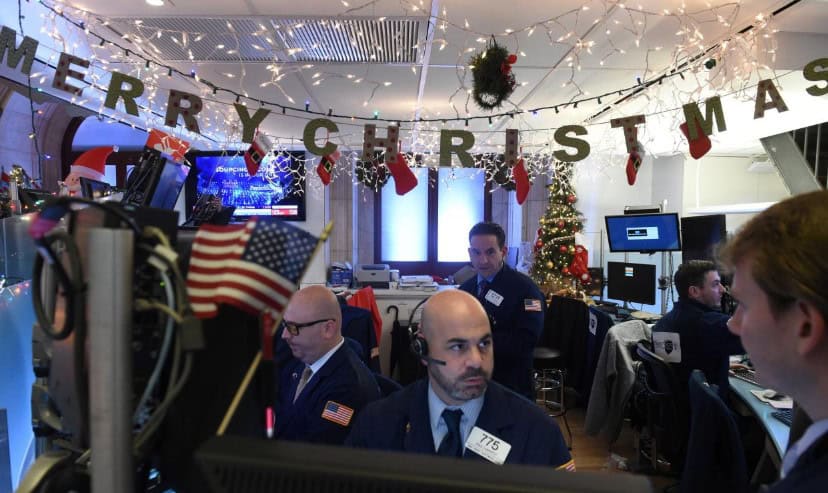
U.S. equity index futures were little changed late on Sunday as electronic trading resumed to kick off a holiday-shortened week following reports over the weekend that President Donald Trump has privately discussed firing the head of the U.S. Federal Reserve.
In early trading, the benchmark S&P 500’s e-mini futures contract ESv1 was up about 0.1 percent, retracing a modest drop when trading resumed at 6 p.m. ET. Futures tracking the Nasdaq Composite Index .IXIC and Dow Jones Industrial Average .DJI had also drifted up a bit after opening lower as well.
With investors worried about a litany of factors, including a partial federal government shutdown, the U.S.-China trade dispute and interest rate hikes by the Fed, U.S. stocks have plunged in December. The S&P 500 .SPX has suffered its largest monthly loss so far since the financial crisis a decade ago and is on pace for the largest loss in any December since the Great Depression.
“More than anything else right now Washington and politics are absolutely driving investor sentiment and market direction and that can turn on dime,” said Oliver Pursche, a board member at Bruderman Asset Management.
As of Friday’s close, the Nasdaq alone is down nearly 22 percent from its record high close in late August and is now formally in a bear market. The Dow and S&P are not far off those levels.
The drop in futures came after Treasury Secretary Steven Mnuchin spoke with each of the chief executive officers of the largest U.S. banks, the Treasury said, and those institutions confirmed they have enough liquidity to continue lending to consumers and corporate clients.
Mnuchin late Saturday had issued a tweet saying Trump does not believe he has the power to remove Federal Reserve Chairman Jerome Powell. Trump has been irate with Powell, his own appointee, since the Fed has raised interest rates four times this year and continues a process of slimming down the vast holdings of bonds it accumulated to help battle the deep recession caused by the financial crisis a decade ago.
Most economists and investors assert that any attempt by Trump to fire Powell would have significant repercussions in financial markets, which have long operated on the principle that the U.S. central bank’s independence is integral to its mission and to market stability.
Rick Meckler, partner at Cherry Lane Investments, said Mnuchin’s acknowledgement that the White House does not have the ability to remove Powell was more reassuring for investors than trying to say it did not want to remove the Fed chair.
“The administration hasn’t been all that stable when it comes to changing their mind,” he said. “Politically these are very strange times.”
Mnuchin will convene a call on Monday with the president’s Working Group on financial markets, a group that includes Powell and the head of the Securities and Exchange Commission. The group, formed following the stock market crash of October 1987, is known more commonly as the “Plunge Protection Team” and met in 2009 in the latter stages of the financial crisis.
Still, Meckler says markets are likely to face headwinds as long as there are open questions about the looming trade war and when the government shutdown will end.
“Most of the statements are only saying that the worst case is unlikely, which isn’t the same as saying something positive,” he said.























